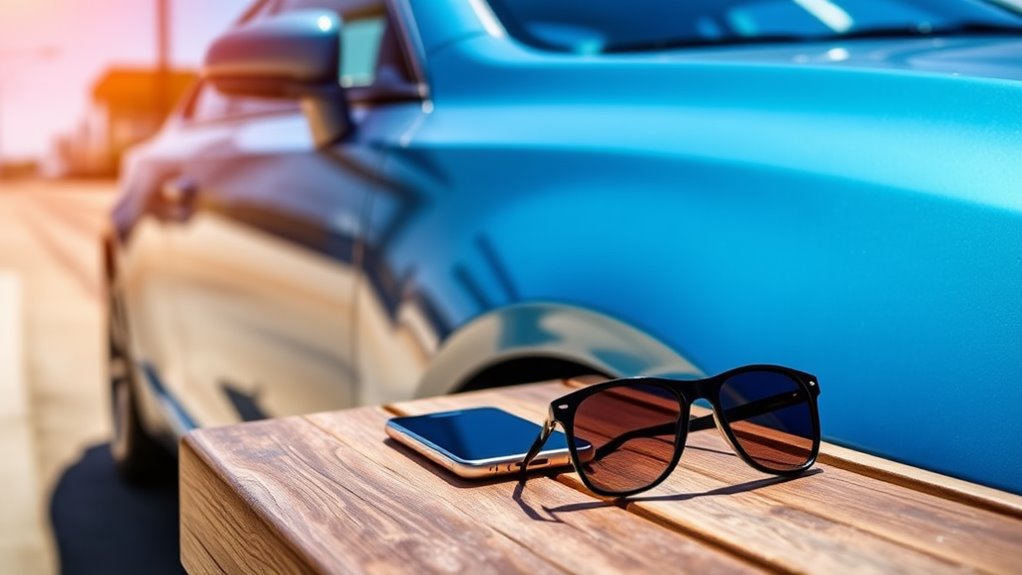Understanding SR22 Insurance for Non-Owners
If you need to meet financial responsibility requirements but don't own a vehicle, understanding SR-22 insurance for non-owners is essential. This specialized coverage offers liability protection for incidents involving bodily injury and property damage. It's particularly important if you've had significant traffic violations. But how do you secure this coverage, and what responsibilities come with it? Let's explore the key aspects that could impact your driving privileges and insurance options.
If you need to drive but don't own a vehicle, non-owner SR-22 insurance can help you meet legal requirements and provide significant liability coverage. This type of insurance is specifically designed for individuals who require proof of financial responsibility, particularly after serious violations like DUI or DWI. The SR-22 certificate demonstrates that you have the necessary liability coverage, even if you don't have a car to insure.
With non-owner SR-22 insurance, you'll receive liability coverage only. This means you're covered for bodily injury and property damage up to the state-mandated limits when you drive a car that doesn't belong to you. It's important to remember that this policy acts as secondary coverage, meaning it kicks in after the vehicle owner's insurance. Therefore, if you occasionally drive a friend's car, your non-owner policy will provide an extra layer of protection. Additionally, affordable SR-22 insurance options can make maintaining compliance more manageable.
Non-owner SR-22 insurance offers liability coverage for bodily injury and property damage when driving someone else's car, serving as secondary protection.
Eligibility for non-owner SR-22 insurance typically hinges on your driving record. If you've had significant traffic infractions in the past, you may need to secure this type of insurance. However, you don't need to own a vehicle, just have a valid driver's license. In most cases, you won't need an ignition interlock device unless your state specifically mandates it. Many states require ongoing proof of financial responsibility, making non-owner SR-22 insurance a necessity for compliant driving.
When you apply for non-owner SR-22 insurance, your coverage will generally include minimum liability limits defined by your state's regulations. These limits can vary widely, so it's important to familiarize yourself with your state's requirements. You may also have the option to add uninsured motorist coverage, depending on local laws. Additionally, many states now accept digital proof of insurance, which can simplify your compliance efforts.
To get started, you'll need to file an SR-22 form with your state's Department of Motor Vehicles. Your insurance provider will typically handle this filing, and there's usually a small fee involved, often around $25, although this can vary by state. It is also essential to know that non-owner policies are designed specifically for drivers without a vehicle and typically cover liability only.
Keep in mind that you'll need to maintain this coverage for a minimum period, often three years. If your coverage lapses, you may need to renew or re-file your SR-22, so staying on top of your policy is essential.
Cost-wise, non-owner SR-22 insurance can be less expensive than standard SR-22 policies but typically more costly than regular insurance. Premiums vary based on factors such as your driving history, age, and the specific regulations in your state. If you're looking to save, consider asking about discounts, like those for completing defensive driving courses.
Finally, obtaining non-owner SR-22 insurance online has simplified the process. Research reputable insurance providers that offer this type of coverage, gather your personal and driving history information, and apply online. With a little effort, you can quickly secure the protection you need to drive legally and responsibly, even without owning a vehicle.
Conclusion
In conclusion, non-owner SR-22 insurance is your bridge to regaining driving privileges after a serious violation. It's not just about fulfilling a requirement; it's about reclaiming your freedom on the road. Imagine the moment you get back behind the wheel, feeling that thrill of independence again. By maintaining this essential coverage, you not only comply with the law but also pave the way for a safer, more responsible driving future. Don't let past mistakes define your journey.
